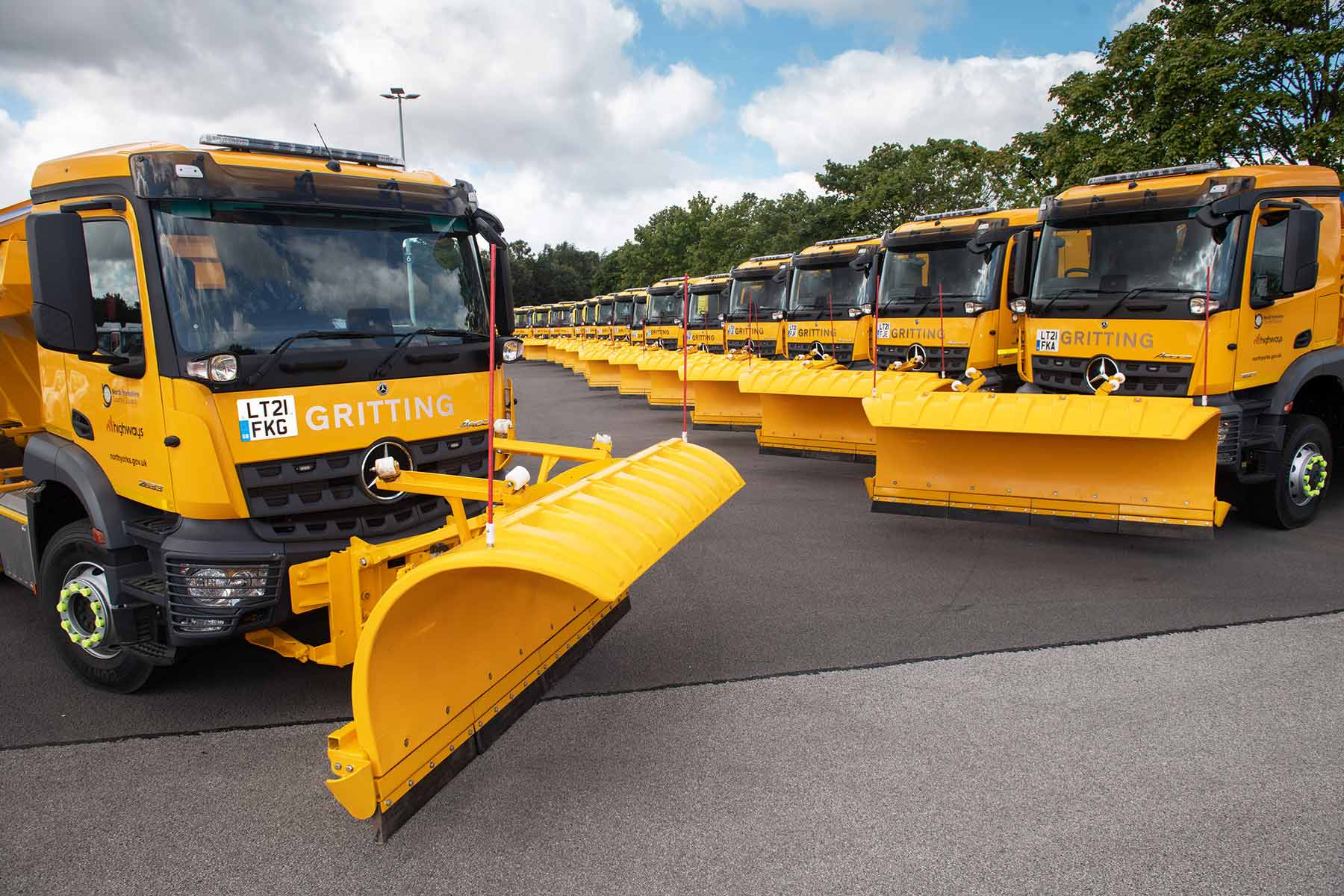Even at the height of summer, plans are being laid to ensure North Yorkshire is ready for whatever winter might throw at the county.
Keeping the county’s vast roads network moving for residents and businesses is a high priority for the County Council – and that means a modern, reliable fleet of gritters is essential.
The authority has invested almost £2.2m in 18 new gritters to replace some of the vehicles in its fleet of 80 gritters.
Cllr Don Mackenzie, Executive Member for Access, said:
We fully understand how important it is for residents and businesses to keep North Yorkshire moving throughout winter. To do that, we need to ensure our fleet stays right up-to-date. That’s why we’re investing now, and why we have a policy that none of our gritters should be more than eight years old and the average age of the whole fleet should be less than five.
The new vehicles will form part of the NY Highways fleet. NY Highways is a company created by the County Council but operating as a private business. It took on the role of maintaining the county’s 5,800 miles of road after the County Council’s private sector contract ended earlier this year. The company is looking ahead to its first winter.
Ross Bullerwell, managing director of NY Highways, said:
Our preparations for winter are going very well. The summer restock of salt is under way and we are doing full summer services of all our existing gritters.
It is great to have the investment in these new vehicles. It really enhances our fleet and gives us a very young fleet. This helps us to ensure that we deliver a successful winter maintenance programme to keep the roads safe and clear for travellers.
The 18 gritters have been manufactured by North Yorkshire company Econ, which is based in Ripon.
The vehicles, which are built on Mercedes-Benz chassis, are four-wheel drive to help them to cope with North Yorkshire’s rural topography. They can be fitted with ploughs, if required, and have the latest GPS tracking systems. Their engines meet the latest emission standards. They are fitted with safety features that maximize the driver’s visibility and have reflective logos and markings to help the vehicles to be seen in all weathers and at night.
Econ recently celebrated its 50th anniversary, having been founded in 1969. The company employs 240 people at its base in Ripon and has satellites in Scotland, Wales and Suffolk. It manufactures 300 gritters a year.
Andrew Lupton, Sales Director for Econ, said:
Econ was very pleased to be involved in this very comprehensive procurement process, which resulted in some of the highest specification gritters in the UK being supplied to this exciting new venture, NY Highways. Econ’s commitment to providing an excellent service, as well as investing in the county, can be seen from its recent £8m expansion at Sowerby, Thirsk.
Cllr Mackenzie added:
Now, perhaps more than ever, it is vital that we are well prepared and ready to act as we see increasing instances of severe weather around the world, and within our own county. These additions to our fleet of gritters, with four-wheel drive for our most challenging locations, will ensure that we are ready.
Our investment in these vehicles demonstrates that we remain committed to maintaining the level of our winter maintenance service under NY Highways. This enables us to treat routinely a greater proportion of our roads network during wintry conditions than any other council in England.
The County Council spends between £6m and £10m each year on winter gritting, depending on the severity of the weather. Last winter, gritters completed more than 10,000 runs. Salt accounts for about a third of the operation’s cost, and taking advantage of improvements in technology to enable gritters’ to spread more accurately has recently contributed to annual savings of up to £120,000.
In addition to the new vehicles, the County Council is investing in new and upgraded weather stations around the county using Vaisala RWS200 technology, providing North Yorkshire with the largest and most up to date network of RWS200 weather stations of any local authority in the UK








Question is are you going to actually use them?